HR’s role in the new world of work: What’s next?
Though the challenges are big, if HR can take a proactive approach and lead in surmounting them, it can have a central role in the new world of work.
Why You Should Care
Radical shifts to the structures of work, coupled with a hard-to-hire recruitment market, are forcing organizations to reconfigure who they are, what they offer, and who they’re attracting — big questions that need HR’s stewardship.
The pandemic gave the HR function increased exposure to being an organizational leadership function — this isn’t guaranteed going forward, though.
HR often has very innovative ideas but can struggle to create arguments to make them. An understanding of what tools and methods it can use, here, is crucial.
With the pandemic raising the profile and importance of HR and people teams — a good thing, because that has brought an increased understanding of what HR does — there is now pressure to shift from operating with an (at the time very necessary) reactive mindset to tackling future problems with a strategic outlook. This evolution will be critical to business and HR success, with issues such as new structures of work, hybrid working, recruitment, workforce effectiveness, creating new talent pipelines, and a reshaped approach to benefits all needing HR’s attention.
Hard to hire, hybrid working and ‘who are we?’
Hard to hire. Hard to hire. Hard to hire. The last 12 months have certainly felt like HR has been stuck in a business world remake of Bill Murray’s Groundhog Day. As the majority in the function know, the employee-employer dynamic has changed and many potential candidates aren’t interested in joining a firm unless specific conditions are offered. In fact, according to one 2021 dataset published by Forbes, 97% of workers have no intention of returning to the office full-time. For HR, it means unless they’re thinking holistically about how interconnected their working structures, employer brand, and attractiveness as an employer are, it could be that they’re consigned to being an extra in this difficult-to-recruit Grounding-seeming scenario as it replays again and again and again.
Yet, as one HR practitioner who attended the roundtable said, many firms aren’t yet ready to let go of who they thought they were. In fact, to paraphrase one attendee’s thoughts, they said that they were bracing to have conversations about ‘getting staff back in’ to get work back to how it was. This has big ramifications for the trust dynamic at work, especially with expectations and the employment landscape having changed. It also makes that hard-to-hire scenario even more difficult. And those questions around ‘what work is’ and ‘who employers think they are’ likely won’t make the hiring and retention challenge any easier if they result in regression rather than progression. Here, HR needs to get its voice heard, because, as several attendees noted, this candidate’s market means that certain people’s needs should be met. Again, here it’s the people function that understands how to do this best.
However, to be successful in shaping might require creativity and a helicopter view of how all those interconnected parts of work, as well the work offering, interact. It will also require an understanding of how the employee or candidate perceives these elements. Even then, the fixes aren’t simple. As many on the roundtable agreed, with some industries struggling with finances, the result of the pandemic, lots of firms can’t simply offer inflated benefits and salaries to attract and retain the talent they sorely need. Throw into the mix increased demands for flexible working, divisions between those who get it and, maybe, those who don’t, the chasm between those who work from home and those who don’t, as well as increased union activity in some sectors and it’s a tangled landscape to traverse.
Maintaining effectiveness for people, business, and customers
One of the other big challenges for HR — outside of hiring, retention, and creating an employee experience that delivers on what individuals now expect from work — is ensuring that work allows employees to be effective as well as helping to drive what the business needs to give to customers. As one attendee noted, this will require HR to figure out how to balance demands from different areas of the organization, each with different expectations. Leaders might want staff to work in a certain way, incoming candidates expect remote work, different teams have ideas about what their colleagues should be doing, and, of course, the customer has their needs, too. It can leave HR feeling, as one attendee noted, that they might not have an obvious solution.
So, as the discussion moved onto asking: does this mean HR should try and redefine what work is, what jobs are, and what the fixes might be in order to try and overcome some of these big issues with work? One attendee thought so, arguing that HR can have a formative role in helping organizations reach the next step: where they hire for skills, rather than roles, and organizations evolve into becoming their own internal talent marketplace. In this way, they thought, that might make organizations more agile when it comes to problem-solving and delivery.
Obviously, to even be in a place where HR can ask these questions, and get heard, it will have to maintain or build upon the more leading position it enjoyed during the pandemic. Yet, keeping that position is no guarantee. Although Covid gave HR ‘the seat at the table’, it might not always be aligned with what the business wants. For instance, HR might be ahead of the curve when it comes to the D&I or flexible work agenda which could create tensions with the leadership function. HR will have to hold this tension proactively and work to shift mindsets before issues arrive, to bring others up to speed, and to ensure successful outcomes. As one attendee noted: HR can’t keep coming in after problems have arisen to clean up the mess.
So, what can HR do? The discussion moved on to getting the right kind of tools to support what can be an innovative and forward-thinking function, in order to strengthen the arguments it makes and improve operations. Anything that improves grasp of data, from the knowledge of workflow to better performance management or even tools that might help evolve the understanding of work processes from being purely transactional.
In this way, the function can enjoy continued prowess and shape the future of work in a positive way for all stakeholders.
WHY JOIN AN UNLEASH ROUNDTABLE?
Amid the current disruption, HR leaders need to get ahead of the exponential trend where work, technology, and how work gets done have changed forever. But how should we approach the relevant questions, given the radical uncertainty we continue to face as the pandemic becomes more protracted than anyone imagined? Our exclusive Virtual Roundtables are designed to explore where business leaders are focused now, key challenges and prioritization for the rest of the year, and what matters most in planning for what’s next.
Check out our upcoming events here: HR Roundtables
Sign up to the UNLEASH Newsletter
Get the Editor’s picks of the week delivered straight to your inbox!

Multiple award-winning journalist, editor and content strategist
Dan is an award-winning HR journalist and editor with over five years experience in the HR space.
Contact Us
"*" indicates required fields
Partner with UNLEASH
"*" indicates required fields
